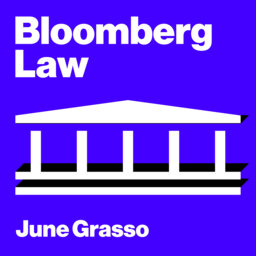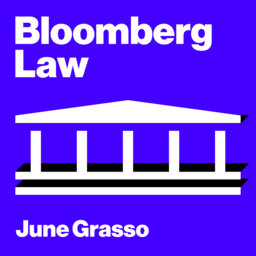Trump Appeals & FTC Studies Surveillance Pricing
Bloomberg legal reporter Erik Larson discusses Donald Trump appealing the nearly $500 million civil fraud judgment against him. Abbe Smith, director of Georgetown Law’s Criminal Defense and Prisoner Advocacy Clinic, discusses the fallout from the Alaska judge scandal. Bloomberg antitrust reporter Leah Nylen, discusses the FTC examining “surveillance pricing.” June Grasso hosts.
In 1 playlist(s)
Bloomberg Law
June Grasso speaks with prominent attorneys and scholars, analyzing legal issues and cases in the ne…Social links
Follow podcast
Recent clips

SCOTUS Not Likely to Allow Trump to Fire Fed's Lisa Cook
36:18

The Week in Law: Transgender Athletes, Big Oil & ICE Officer Immunity
40:17

Can Rene Good's Family Sue the Ice Officer Who Shot Her?
40:46
 Bloomberg Law
Bloomberg Law